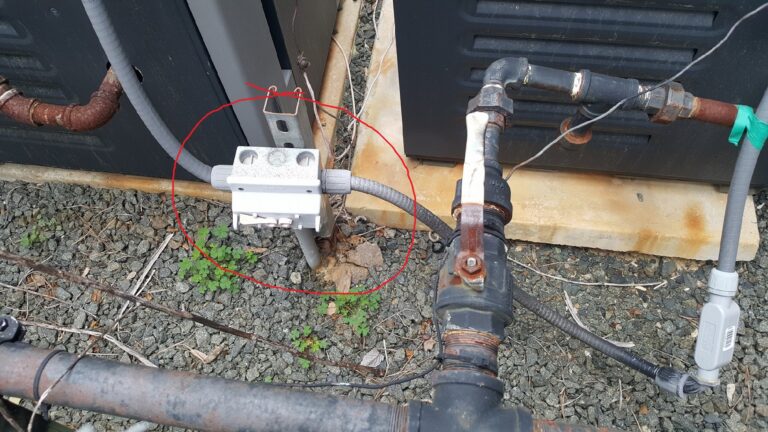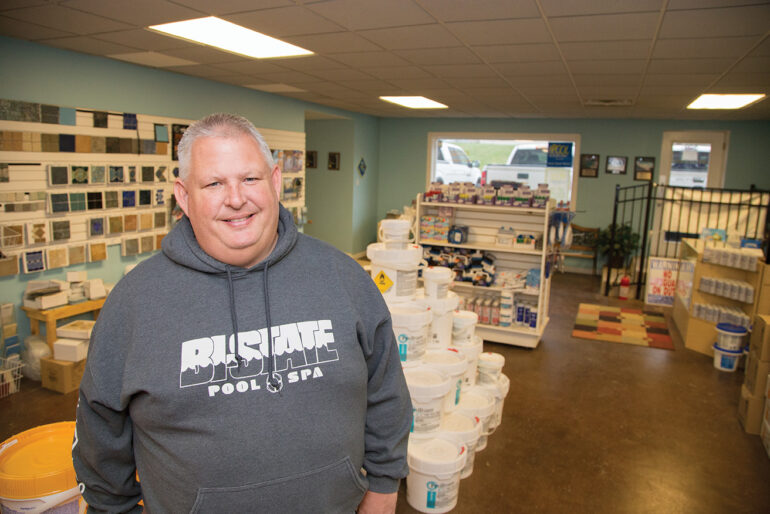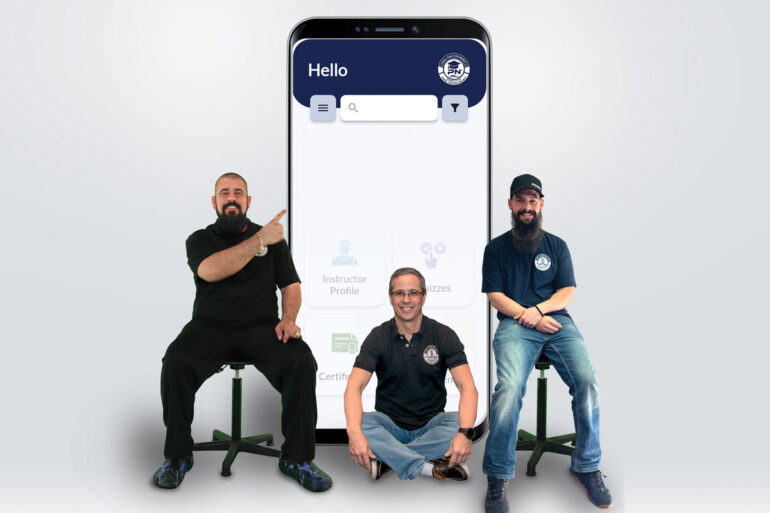Salt Conversion
Everyone is looking to save a buck these days. When the recession started six years ago, the “How much can I save and still get what I want?” mentality hit in full force. Though there have been a few upswings in the economy since then, we can’t seem to shake the nervousness. Business owners know it, too, and pool professionals are no exception. With labor and product overhead, finding ways to save without providing subpar products or cutting corners can be challenging. It’s possible that you haven’t considered one option: Converting all customers on your service route to salt chlorinators to save on costs.
Overall Benefits of Salt
Ray Denkewicz, global product manager of sanitization and chemical automation pool products for Hayward, breaks it down for a quick review. “Salt chlorination delivers three Cs,” he says. “Comfort and convenience at a tremendous cost savings over traditional chemical chlorine.”
Salt chlorinators provide a softer sanitizing of the water than a traditional chlorinator, with no harsh odors, eye redness or skin irritation. They provide the convenience of not having to haul, store and dispense heavy, harsh chemicals. The systems are user-friendly as well.
“Chlorine output rates, cell function and salinity levels of the pool are clearly shown with LED lights on the face of [a salt sanitizer] unit,” says Jeff Smith, product manager of sanitizers for Pentair. “Adjustments are easily made with two simple push buttons. The chlorinator communicates with automation systems allowing control through those systems.”
“When you look at how a salt chlorinator works, you’re not shocking the whole pool, but you’re shocking a very small volume of water constantly,” says David Goldman, director of product development at Zodiac. “At any given time, the water in that cell is essentially super chlorinated” without having to add chemicals, he says.
Additionally, Denkewicz says, “a Hayward salt cell can produce up to 710 pounds of pure free available chlorine at less than a dollar per pound. Compared to the price of Trichlor or other forms of chlorine, that’s a savings of 50 percent or more per pound or per gallon.”
Travis Leonard, owner of A&G Concrete Pools in Fort Pierce, Fla., has approximately 400 customers on his pool-service route, and every one of them uses a salt system. He points out that, when dealing with severe weather changes, especially with Florida summers, a traditional chlorine sanitizer won’t do the trick.
“In summer, we might get four to five inches of rain, and that would dilute the chlorine level in the pool,” he says. “So if my service technicians are out there one day and we get several inches of rain the next, the chlorine level would drop dramatically, and the tech won’t be there for another week. Now you have nothing inside the water to combat the bacteria and the algae, and so that algae starts to grow.” Salt sanitizers, Leonard says, eliminate this problem because they maintain the balance regardless of weather conditions.
What This Means for Pool Pros
What these benefits mean for the consumer is obvious, but it’s important to note that the three Cs also have fiscal benefits for pool professionals. With salt sanitizers, service routes are easier to manage, because pool professionals spend less time testing the balance of the water and handling and adding chemicals. This reduces labor costs and overhead in the long term. “Salt systems produce a consistent and constant chlorine level, removing the variability and associated water quality problems that can arise from solid or liquid chlorine addition,” Smith says. “The pool professional profits from this sale of a quality product without the worries of customers shopping on price elsewhere to obtain their chlorine chemicals.”
Leonard mentions that salt sanitizers save on both labor and product costs. He spends approximately $4 on a 50-pound bag of salt and goes through five or six bags a year. In comparison, a gallon of chlorine costs 99 cents but won’t last a day.
“We are pool professionals, not a pool company,” Leonard says. “We’re not selling chemicals. We’re maintaining and taking care of our customers’ investments. Big-box stores and pool-supply stores make money selling chemicals. They’re against the salt system because it uses fewer chemicals. I do not charge my customers any less because they have a salt system on the pool, but I spend less money on chemicals. I’m making more money with all of [my customers] on salt systems because, ideally, that’s why we’re in business — to make money.”
Converting Customers
Before you attempt to convert all of your pool route customers to salt systems, Goldman recommends self-analysis. “First and foremost, the pool professional needs to decide if it’s a technology he wants to use — if it’s compatible with his business and how he likes to maintain pools,” he says. “If he believes it’s the right way to go, then it’s a matter of how he wants to market it.”
Leonard says the most important thing is to educate customers on the benefits of salt systems, both in sanitation and quality of water. “Once the customer is educated, they make the decision on their own and you don’t have to sell them on anything,” he says. “And once more clients have the salt systems, they talk to their neighbors and their friends. If you swam in a pool that has a salt sanitizer on it, you want your water to feel that same way.”
In some cases, you may have to do more than show them a list of benefits; some customers may need an incentive to make the transition. “We are hearing that many pool professionals are offering a free Hayward salt chlorinator when pool owners sign up for annual service contracts,” Denkewicz says. “This is a great way to build customer loyalty.”
Goldman is behind that marketing strategy, but with risk protection in place. “A pool pro can make it a part of his service, so that as long as the customer uses his service, it includes the saltwater chlorinator,” Goldman says. “However, if they let you go before the contract expires, there could be an early termination fee, which may be the retail cost of the chlorinator or that you take the chlorinator back.”
Warranties are another way to motivate customers to convert to salt systems. Zodiac, among other manufacturers, will not provide a full warranty on a salt chlorinator unless a licensed pool professional installs it. Marketing this benefit to customers can make the difference in someone becoming a loyal customer rather than installing a salt system as a DIY project or using an unlicensed pool service to save a buck. “We believe it’s critical that, when you buy something with our brand on it, you receive the best possible experience from our products. We really do our best to encourage that the product is installed by a professional,” Goldman says.
Leonard adds that it’s also important to have a user-friendly system when trying to convert customers on your route to salt. Like many other pool professionals, his customers weren’t always on salt. “Our consumers were always very hesitant because they heard about the problems in the upkeep and some systems not working,” he says. “But when you have a company like Zodiac that designs a system that is very user-friendly, it’s easy to sell a consumer when you show them the advantages and they’re no longer afraid of the system.”





